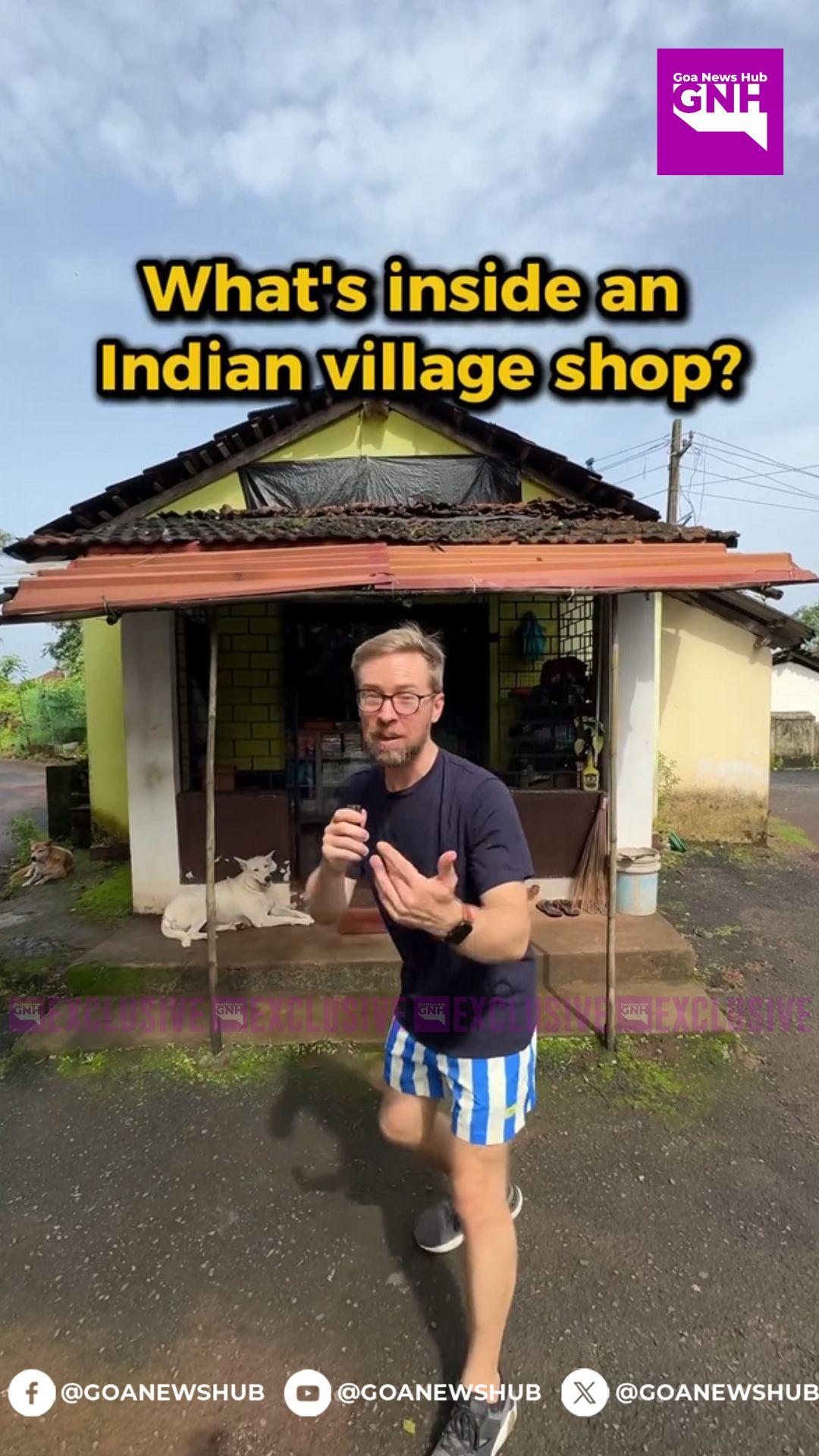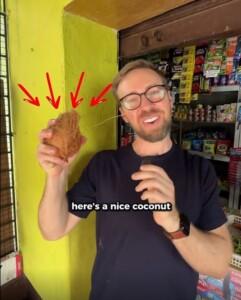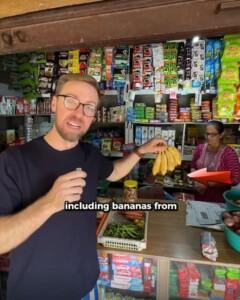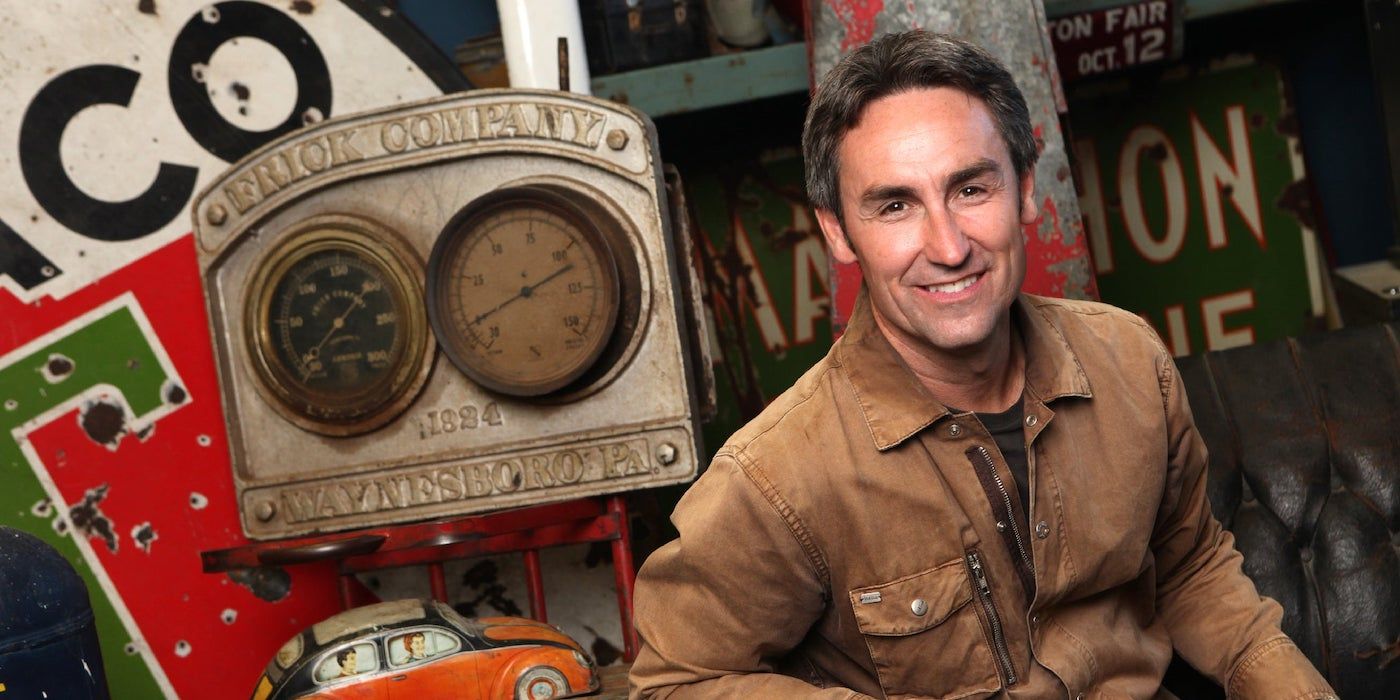Roadside shop in Goa’s village excites American content creator

Panaji: An American content creator who has been touring India, was recently surprised with the things that are sold in Indian village shops in Goa.
The video posted by Nick Gray, who has his popular Instagram handle @nickgraynews, has posted a video about a shop in a village of Goa.

The US citizen, Gray, who has authored the book “The Two Hour Cocktail Party”, was recently in Goa stumbled upon a roadside village shop in Goa.
“I will show you everything for sale inside a small village shop in Goa, India,” he captioned the video which speaks about the stuff that are sold in this shop.
Interestingly, he was surprised to know that the shop does not accept cash or credit cards but there is a monthly credit system.
“Let me show you. I’m in the state of Goa here in India, and I want to show you all the different things that are available in the shop. But one thing, specifically, are these individual servings of shampoo, coffee, more shampoo, spices. I’ve never seen those individual packets before,” he said in the video.

“Now, this woman sells everything, including bananas from the local gardens, some onions, potatoes. There’s also coconuts over here, which I thought was so cool. Here’s a nice coconut, if you’d like one,” he said.
“And by the way, they don’t accept cash or credit cards. There’s a monthly credit system,” he said.
The comments that are received on the video are interesting too. One of this follower wrote “Being an Indian I never thought pan Patti shop can be content too!”
Another follower was excited about the monthly credit system. The user wrote “Can you explain a little more about the monthly credit system used in these shops? Definitely an interesting concept!”
Related
‘American Pickers’ Star Mike Wolfe’s Antiques Shop Faces Backlash for…
American Pickers host Mike Wolfe has recently come under fire, and it has to do with his antiques store, Antique Archaeology, in Nashville. The U.S. Sun has re
S.Coups’ Favorite K-Beauty Brand Is Now Available in America: Shop…
The SEVENTEEN star was announced as the brand ambassador for the skincare brand last year.
The trade war is here. You’ll notice it at the…
Canadians' pocketbooks will likely be the victim of a prolonged trade war with the U.S., with the prices on consumer goods potentially rising over the next week
American booze taken off shelves and stacked in shopping carts…
Open this photo in gallery:A staff member removes bottles of U.S. alcohol from the shelves of a Liquor Control Board of Ontario (LCBO) store, as part of retalia












